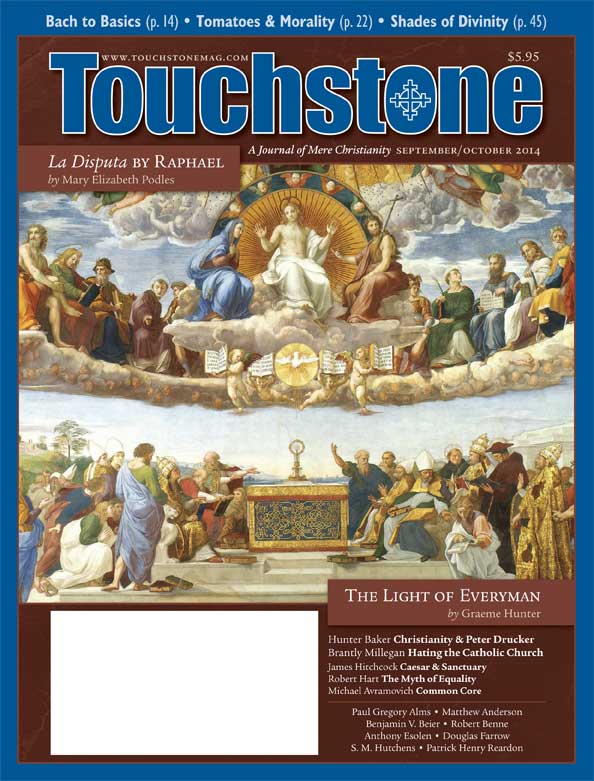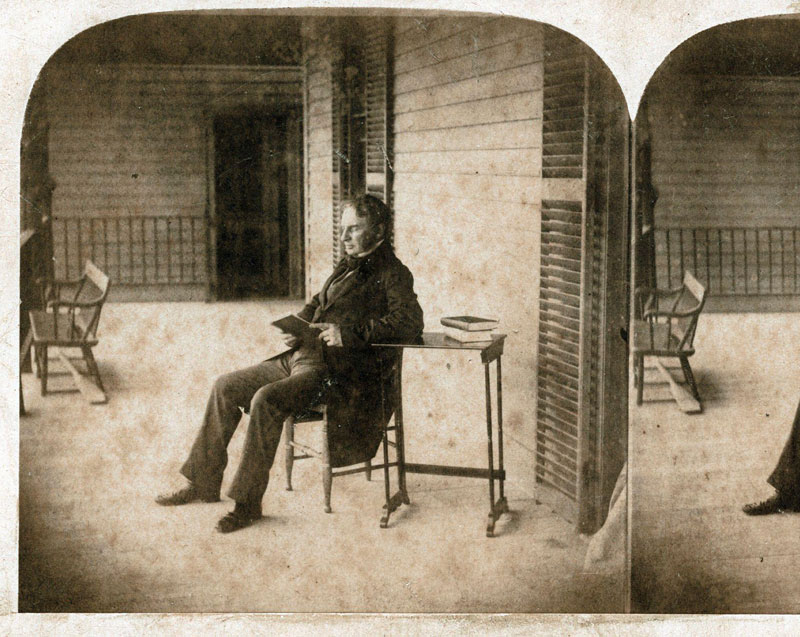Reviews
No Offense Taken
What Is Marriage? Man and Woman: A Defense
by Sherif Girgis, Ryan T. Anderson,
and Robert P. George
Encounter Books, 2012
(146 pages, $15.99, paperback)
reviewed by Douglas Farrow
Same-sex marriage is at once a very stupid idea, as this book makes clear, and a very wicked one, which it does not. Whether the deliberate omission is to the book's credit is a question to which we will return. It suffices for now to observe that What Is Marriage? (which doesn't, as I recall, deploy the word stupid) represents a model contribution to public discourse, combining clarity and pithiness with fairness and generosity. Read it; then give it to anyone who shows even the slightest interest in a civilized discussion of the topic.
The main argument is easy to summarize. There are two views of marriage vying for supremacy, viz., the traditional or conjugal view and the revisionist or romantic view. According to the former, marriage is the comprehensive union of a man and a woman that is by nature (though not always in fact) oriented to procreation and child-rearing. According to the latter, marriage is an emotional union, enhanced by sexual activity according to preference, taking the form of a publicly recognized domestic partnership.
According to the authors, only the former can make sense of marriage as a public institution contributing to the common good, and of the laws that have traditionally governed marriage. Insofar as the latter prevails (as it must if there is to be same-sex marriage), marriage is misunderstood and its objective norms, particularly exclusivity and permanence, are obscured or otherwise threatened, along with the cultural goods formerly cultivated by marriage, including those that justify the state's involvement with the institution. These goods concern, among other things, the personal fulfillment proper to marriage, spousal well-being, child well-being, friendship, religious liberty, and limited government. Helpful remarks are made on each, though there is much more to be said than the book's brevity permits.

Homosexuality Bracketed
This book—original in its configuration rather than in its thesis, and perhaps the best of a rare breed—tries to show "that conjugal marriage laws are indeed rationally grounded" (p. 6). It succinctly addresses many of the leading objections to the traditional view of marriage while exposing the incoherence of the revisionist view. To read it against the backdrop of the Benthamite charge leveled afresh by the Supreme Court majority in Windsor—that defense of the conjugal view of marriage is rooted not in reason but merely in animus towards homosexuals—is to marvel at the Court's capacity for intellectual dishonesty. The defense is, or can be, eminently rational, as it is here, while the failure to make such a defense leaves society exposed to real and present dangers.
For their part, Girgis, Anderson, and George are careful to bracket out homosexuality. In their opening sentence (and periodically throughout the book) they assert that the so-called "gay marriage debate is not directly about homosexuality, but about marriage"; that is, "not about whom to let marry, but about what marriage is." This is more or less right. Anyone, in principle, may marry if he chooses, whichever sort of thing marriage is. But what is he doing if he marries, and is it anything the rest of us should care about? Is it something of public rather than merely private import? What Is Marriage? makes it abundantly evident that the traditionalists have a much easier time with such questions than the revisionists. Moreover, the competition between their respective views of marriage, as the authors note, is rooted in disagreements pre-dating proposals for same-sex marriage—disagreements about divorce, for example.
Just here, however, a caveat or two. Efforts to redefine marriage at law are bound up with the rise of the homosexualist movement as a natural extension of the contraceptive mentality that underlies the divorce culture. One can appreciate the authors' reticence about this movement and this mentality; not to bracket it would at the very least require a different rhetorical strategy. Certainly it is easier to say, "We're not attacking what anyone feels or does; we're only defending the institution of marriage," than to say, "Some forms of sexual behavior, if widely approved and practiced, must inevitably destroy the institution of marriage and civilization with it."
The Sustained Assault on Marriage
Douglas Farrow is Professor of Theology and Ethics at McGill University in Montreal. His recent books include Ascension Theology, Desiring a Better Country, Theological Negotiations, and 1 & 2 Thessalonians in the Brazos Theological Commentary on the Bible. He is a senior editor of Touchstone.
subscription options
Order
Print/Online Subscription

Get six issues (one year) of Touchstone PLUS full online access including pdf downloads for only $39.95. That's only $3.34 per month!
Order
Online Only
Subscription

Get a one-year full-access subscription to the Touchstone online archives for only $19.95. That's only $1.66 per month!
bulk subscriptions
Order Touchstone subscriptions in bulk and save $10 per sub! Each subscription includes 6 issues of Touchstone plus full online access to touchstonemag.com—including archives, videos, and pdf downloads of recent issues for only $29.95 each! Great for churches or study groups.
Transactions will be processed on a secure server.
more on marriage from the online archives
more from the online archives

33.1—January/February 2020
Do You Know Your Child’s Doctor?
The Politicization of Pediatrics in America by Alexander F. C. Webster
calling all readers
Please Donate
"There are magazines worth reading but few worth saving . . . Touchstone is just such a magazine."
—Alice von Hildebrand
"Here we do not concede one square millimeter of territory to falsehood, folly, contemporary sentimentality, or fashion. We speak the truth, and let God be our judge. . . . Touchstone is the one committedly Christian conservative journal."
—Anthony Esolen, Touchstone senior editor













